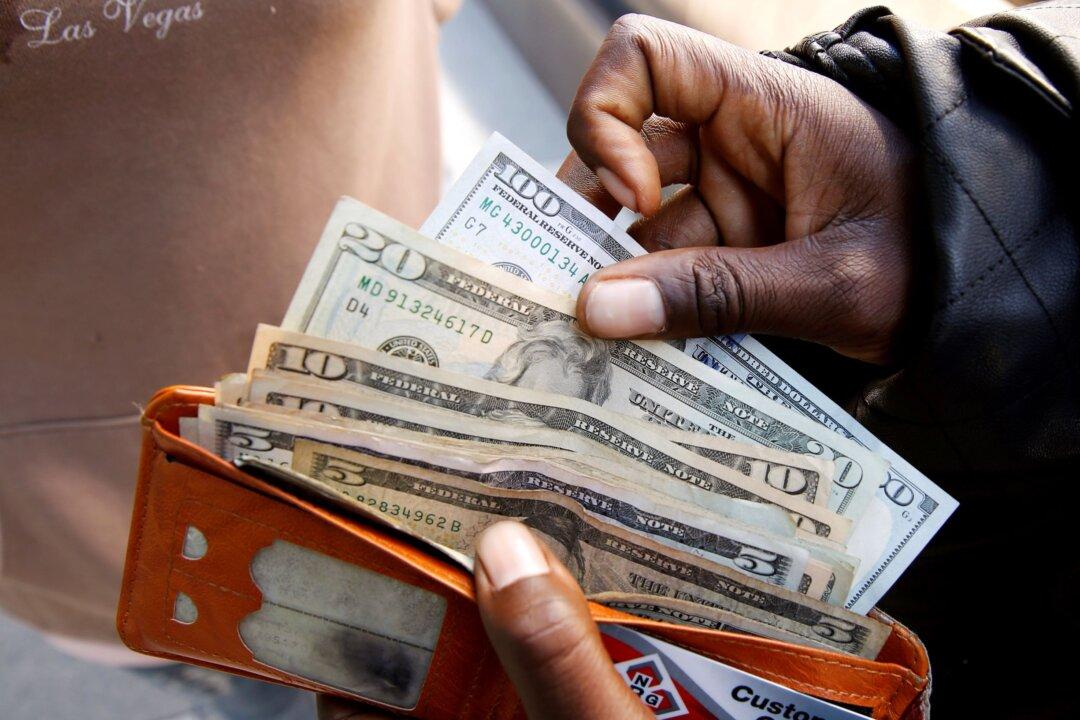LONDON—The dollar edged up on Friday to pull away from multi-month lows against the euro and sterling, as investors began to train their sights on a slew of major central bank meetings next week.
The U.S. Federal Reserve, European Central Bank, and Bank of England are all due to make rate decisions next week as they judge what policy adjustments may be required in their battle with rampant inflation against a tough global economic backdrop.





